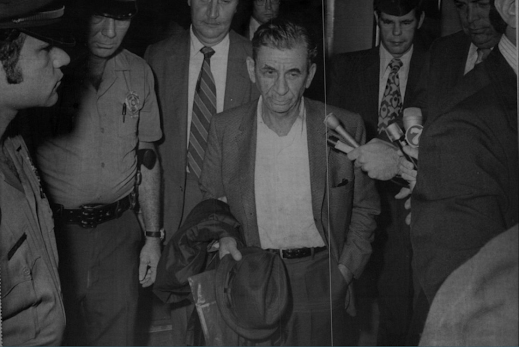Volcker Hassmann's expose of the city's international dirty money-men and their assets in the three dominant West German parties
Nearly everyone who hears the name of the principality of Liechtenstein associates something with it, a tax paradise and lax banking regulations. Malicious wiseacres say that all one needs to set up a business in Liechtenstein is an empty spot next to the doorbell to screw in the company name-plate. And indeed in the Liechtenstein capital of Vaduz today there are virtually more "establishments" than residents.
So the founding of an establishment is nothing out of the ordinary in Vaduz. But an establishment of a very particular sort came into being after one quite unusual gathering. In 1969 Prince Emanuel von und zu Liechtenstein; the consular representative of the banana republic of EI Salvador, Franz Gstohl; and members of the German Christian Democratic Union party met in Liechtenstein to found the "European Business Consulting Institute" (EU). The EU was simply a letter-drop, a channel for covert contributions to parties in the Federal Republic of Germany. Businessmen in Germany concluded deals for non-existent expertise and reports with the EU and transferred payments of five- or six-digit sums to Vaduz. These were tax-free payments, which were then funneled back into the Federal Republic and lavished upon the party coffers.
Many readers will shrug their shoulders and think: "Another party financing scandal, so what?" But this one was different. Certainly the Vaduz arrangement had more style than Walter Leisler-Kiep's signature-machine. [Leisler-Kiep, the leader of the Christian Democratic Union in the city of Hamburg and an aspirant to the chancellorship, is known for his foppish good looks-ed.] But the decisive factor that makes this affair so interesting is the person who arranged the meeting in Liechtenstein: Dr. Tibor Rosenbaum.
Rosenbaum, the Geneva banker, was a free-spending man. In August and September 1972 he gave two contributions of 50,000 deutschemarks each to former Hesse Governor Albert Osswald, which were deposited as loans in the treasury of the Social Democratic Party (S P D). Naturally there was a motive for Rosenbaum's magnanimous gesture. Under Osswald the Hessische Landesbank (Helaba) had been deeply involved with Rosenbaum's Banque de Credit Internationale (BCI) and had prevented it from collapsing, if only for two years. The Vaduz party financing mechanism functioned up until 1976, the period in which the fallout from the Helaba-BCI scandal of 1974 hit politicians and bankers in the Federal Republic.
The true background of the so-called Helaba affair, which really should be called the Rosenbaum affair, came to light neither in the press nor in the innocuous investigation committee set up by the Hesse state parliament. The fact is that Helaba had hooked itself up to BCI, a bank entangled with the worldwide network that finances the drug trade and organized crime. For two years a governor of Hesse sat on the board of an international drug bank - that is the real Helaba scandal. (more...)
The Frankfurt Mafia Part I Part II Part III

No comments:
Post a Comment